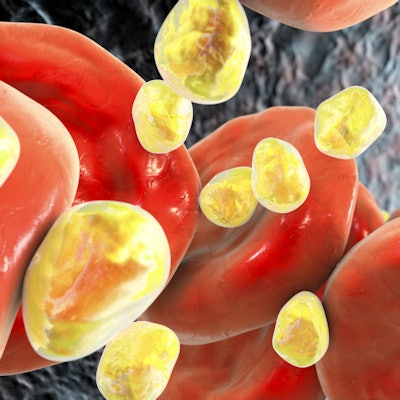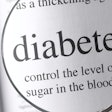
A machine-learning algorithm may be useful for scanning electronic health records (EHRs) to spot people with undiagnosed familial hypercholesterolemia (FH) based on a mix of lab reports and other data, according to a study supported by big pharma and published in Lancet Digital Health on October 21.
Familial hypercholesterolemia is a genetic condition that results in very high levels of low-density lipoprotein (LDL) cholesterol, posing a risk for major cardiovascular events. Signs of the condition in adults include a total cholesterol level of more than 300 mg/dL and LDL cholesterol greater than 200 mg/dL. The condition can be confirmed through genetic testing for mutations in the LDL receptor and other genes.
The FH Foundation put its Flag, Identify, Network, Deliver (FIND) FH model to the test for screening in an EHR database from the Oregon Health & Science University (OHSU) and separately in a national database of U.S. patients. The study was funded by the FH Foundation, with support from pharmaceutical companies that market branded drugs that inhibit proprotein convertase subtilisin/kexin type 9 (PCSK9) and offer robust cholesterol reduction: Sanofi with partner Regeneron Pharmaceuticals, and Amgen.
"FIND FH performed comparably across two types of health-care data: a national health-care encounter database and an integrated health-care delivery system with a structured EHR database," co-author Kelly Myers, chief technology officer at the FH Foundation, and colleagues explained.
"The fact that the model performs similarly in distinct health-care data frameworks suggests that it might be [generalizable] to other institutions, agencies, employers, and health-care delivery systems," they wrote.
Underdiagnosis, undertreatment
It's estimated that fewer than 10% of the 1.3 million people in the U.S. born with familial hypercholesterolemia are diagnosed with it, according to the FH Foundation. At the European Society of Cardiology annual meeting this fall, researchers presented results from the large Observatoire des Infarctus de Côte d'Or (RICO) study showing that 2.1% of patients hospitalized with a heart attack had familial hypercholesterolemia and noted the "dramatic underuse" of statins and other generic cholesterol-lowering drugs.
In the Lancet Digital Health study, Myers and colleagues analyzed a range of factors for determining familial hypercholesterolemia, including lab results, prescriptions, and a history of procedures and diagnoses. They took a small subset of charts and had an expert review the likelihood of the patient having FH, in line with the machine-learning model. The goal was to identify a phenotype consistent with the condition, as opposed to predicting the likelihood of having a positive genetic test, the researchers explained.
"As genetic testing results become more readily available, we intend to include this feature in future versions," they wrote.
In the national dataset of about 170 million people, the model estimated 1.3 million had the condition. A subset of 45 cases were checked, and of these, 87% were deemed by expert review to be possible, probable, or definite FH -- in other words, there was enough evidence to justify a formal clinical check and treatment, the researchers reported.
As for the OHSU dataset, the model flagged 866 people as having familial hypercholesterolemia, out of approximately 174 million. In addition, in a subset of 103 cases, 77% were deemed to have possible, probable, or definite FH.
For both datasets, many FH cases would have been missed if the diagnosis were based on a simple LDL threshold, the group concluded.
"Although lipid concentrations are helpful to the [machine-learning] algorithm, many patients identified in this study either did not have lipid levels obtained and were flagged by other characteristics or they were taking lipid-lowering medications and had lipid levels below pretreatment diagnostic thresholds," Myers and colleagues wrote. "Future studies should assess the effect of having lipid levels available on a higher percentage of the available cohort on model performance."
The tool promises to help identify people with FH at scale so they -- and perhaps also their family members -- can receive treatment. However, there has been pushback on the prescribing of PCSK9 inhibitors due to their cost. The authors also acknowledged that getting health providers familiar with machine-learning approaches designed to help them reconnect with patients on new medical issues is a "crucial hurdle."



















